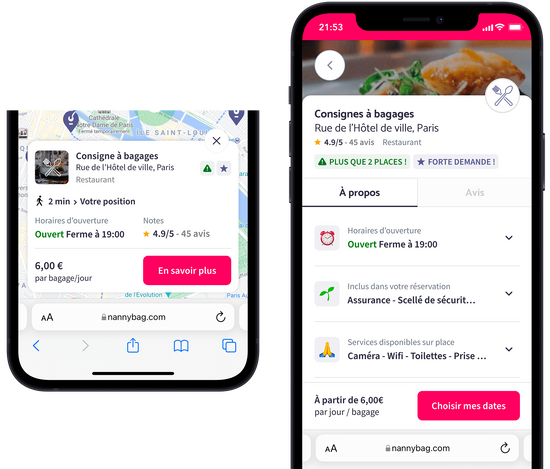Is it safe to travel to Paris now? - 2025 edition

Paris is just like any other big city. It has great areas and others where you might have to practice more safety precautions. Amid protests and heightened police interventions around Paris, many travelers are expressing concerns about visiting the beloved City of Light and asking: Is Paris safe? and if so, how safe is Paris?
In this article, we’ll answer the questions to the best of our abilities and discuss safe things to do in Paris 2025. Consider this your safety Paris travel guide.
Latest demonstrations
Back in June 2025, the U.S. Embassy in Paris, France, issued a security alert due to the potential risks posed by the ongoing protests triggered by the tragic police shooting of 17-year-old Nahel Merzouk in the suburb of Nanterre.
The embassy has warned that these demonstrations will likely persist and could escalate into further violent crime. They have strongly advised travelers to exercise vigilance and avoid areas with significant protests and police presence.
Although the current situation in French society demands serious attention beyond tourism, many vacationers are still determining their safety during their planned trips.
Given these circumstances, travelers are now grappling with whether to reschedule or cancel their visits to Paris. However, things have calmed down, and there haven’t been any more demonstrations.
Safest Places in Paris
- Champs-Élysées: This famous avenue, known for its luxury shopping and Arc de Triomphe, is well-patrolled and generally safe.
- Le Marais: A historic and trendy neighborhood north of the Seine River, Le Marais is popular among tourists and locals alike, offering a safe and vibrant atmosphere.
- Saint-Germain-des-Prés: This upscale district is known for its artistic and literary history, and it generally maintains a safe environment.
- 7th arrondissement: The vicinity around the Eiffel Tower is well-secured and frequently visited by tourists, contributing to a safer environment.
- Latin Quarter: This vibrant area, known for its universities and lively atmosphere, is typically safe for visitors.
- Île de la Cité: The historic heart of Paris, home to Notre Dame Cathedral, is usually well-patrolled and safe.

Areas to be Cautious
Most areas in Paris are generally safe to visit, but some areas have a reputation. If you happen to walk by them or visit them, practice extra precautions.
- Châtelet-Les Halles: This area is known for its large transportation hub, and while it's generally safe during the day, it can become “sketchy” at night.
- Gare du Nord is another busy transportation hub that can attract pickpockets and petty theft, so be cautious with your belongings.
- Barbès-Rochechouart: This area can be crowded and has a reputation for petty crime.
- Stalingrad: This area has been known for occasional incidents of violence and is best avoided at night.
- La Chapelle: Like Stalingrad, this area has seen some crime issues and should be cautiously approached.
- Goutte d'Or: This neighborhood is adjacent to Barbès-Rochechouart and has seen some social tensions and safety concerns.
- Porte de la Chapelle: Another area that can be less safe, particularly at night.
- Along line 2 in general: Many areas on this list are near or on line 2. There are many attractions along this line, such as the Moulin Rouge and Père Lachaise Cemetery, so you’ll probably take this line during your train, practice extra caution here.
These areas do not mean they are unsafe, or you should avoid them altogether. Still, exercising extra caution and vigilance is good when visiting these neighborhoods, especially at nighttime.

Safety Tips
Stay Informed: Keep a close eye on news updates and official advisories from the U.S. Embassy or relevant authorities to stay informed about evolving developments. Monitor local media and check the France travel advisory before your trip.
Avoid Protest Areas: Clear areas are known for protests or demonstrations, which can quickly become erratic and dangerous. If you happen to be in the area, exercise high caution. The protestors don’t usually interact with passersby, but that’s not to say it can’t happen.
Plan Safe Routes: Choose well-traveled and secure routes when exploring the city, and familiarize yourself with the local public transportation system.
Maintain Awareness: Be aware of your surroundings and trust your instincts. If something feels unsafe, promptly move to a more secure location. Use common sense, and steer clear if you notice something or feel uncomfortable.
Seek Local Advice: Consult with hotel staff or locals about areas to avoid and get recommendations for safe activities and destinations.
Travel in Groups: When possible, travel with companions to enhance safety and support each other. If you’re unfamiliar with the area, take guided tours to avoid getting in harm’s way. Plus, if you travel with guides, you can skip the line in many attractions without getting dirty looks.
Secure Belongings: Be mindful of your belongings and avoid displaying valuable items openly. Pickpocketing happens frequently in Paris, especially in the metro and high-volume areas like the Louvre, Eiffel Tower, Pigalle, and Montmartre.
Tourist areas attract many pickpockets. During your trip to Paris, avoid calling attention to yourself. If you’re looking for directions, step to the side of the street and avoid looking lost.
If you have large bags or suitcases, try storing them to reduce the risk of being labeled as a tourist, for helpful luggage storage sites in Paris, use Nannybag. You can book directly on your smart device and drop off your bags at a location near you.
Avoid using your phone near metro doors: It’s common to hear phones getting stolen before the doors close. Keep it in your pocket, or use a phone case attached to a chain.
Don’t sign any petitions: This is another common scam that happens frequently in Paris. Avoid signing any petitions. Chances are they’re trying to pickpocket you.
Emergency Contact Information: Keep important contact information, including embassy details and local emergency services, readily accessible. The contact number for the police in Paris is 17, but if French is a barrier, dial 112, the EU emergency line.
So to answer the big questions in short, is Paris safe to travel, and is Paris safe in 2025?
Paris is generally a safe city and is considered a safe city for tourists. Like any central urban area, it's essential to exercise caution and be aware of your surroundings, but most visitors have a safe and enjoyable experience in the city. Paris has a strong security presence, and authorities take measures to ensure the safety of residents and tourists alike.
To stay informed about the current safety situation in Paris, it's best to consult up-to-date travel advisories and check for any recent news or official government statements. These sources will provide the most accurate and current information about the safety conditions in the city.

Say hello to exploring and goodbye to heavy bags!
What if you could enjoy every minute in the city without the burden of your bags?
- Safe luggage storage for a flat daily price of 4,50 €/luggage item
- Included luggage protection of up to €10000 in case of breakage, loss or theft
